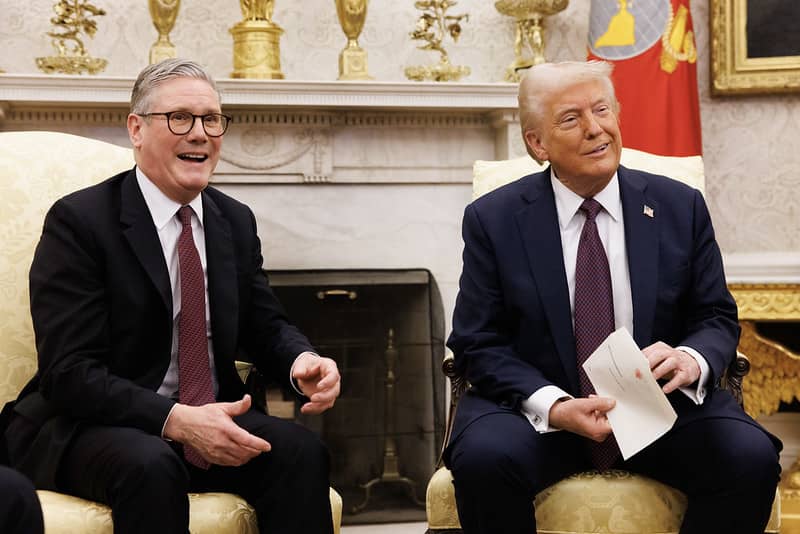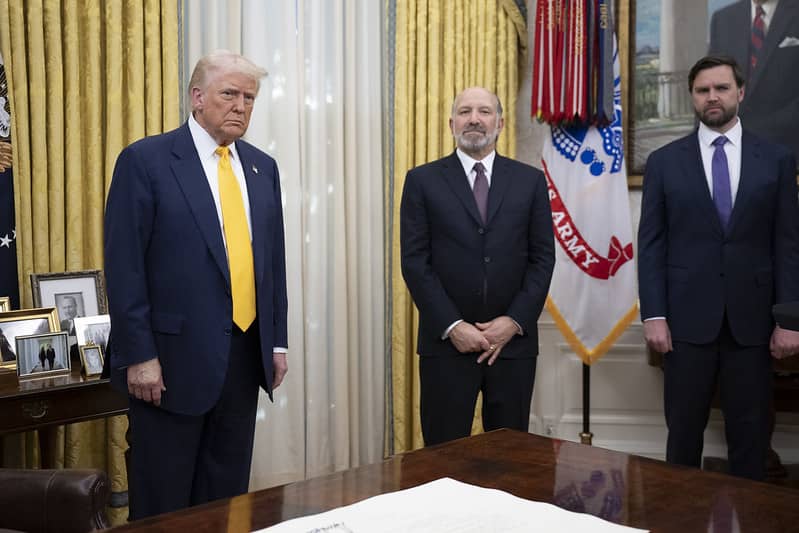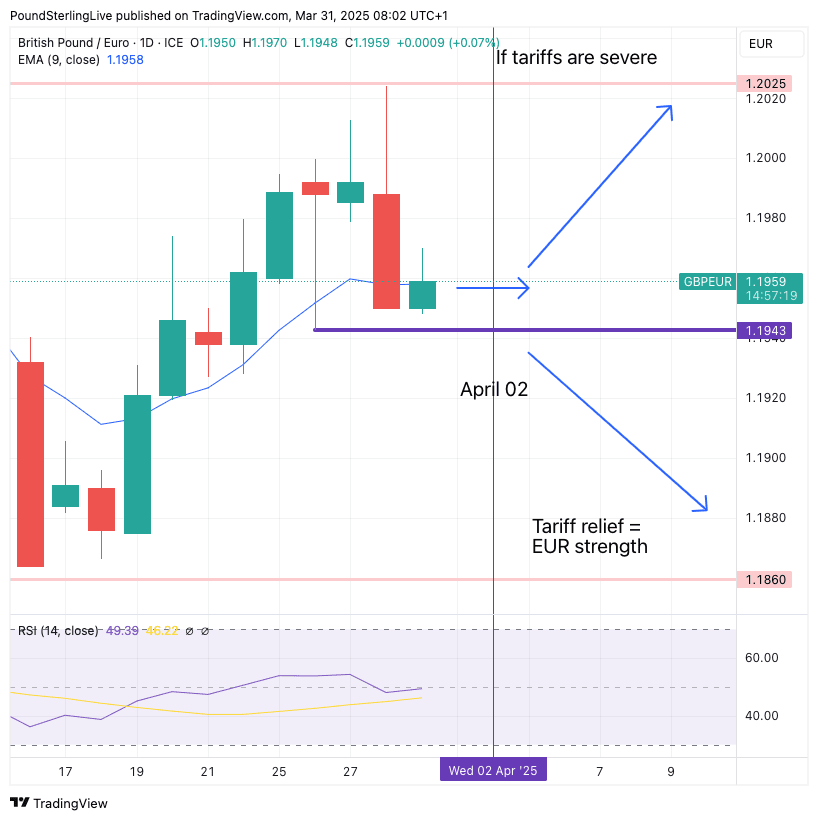
File image. Prime Minister Starmer spoke with Donald Trump over the weekend as world leaders sought to minimise tariffs due to be announced on Wednesday. Picture by Simon Dawson / No 10 Downing Street.
Pound Sterling will be impacted by global developments this coming week.
The British Pound has recorded three consecutive weekly advances against the Euro, although upside momentum is soft and prone to mean reversion.
We saw a good example of such mean reverting tendencies on Friday, when a rally in the Pound-to-Euro exchange rate suddenly turned tail at 1.2025, resulting in a 0.35% daily close.
So, there is a decent amount of random volatility to watch out for here, even if the general drift of the past couple of weeks has been higher.
Pound Sterling is well supported against the Euro and we would look for buying support to come in at 1.1943, which is last Wednesday's low.
To be sure, we are close to this level on Monday amidst soft global equity market conditions that betray a sense of investor uncertainty regarding Wednesday's U.S. tariff announcements.
Generally, market selloffs weigh on the Pound-Euro exchange rate, which speaks of downside risks heading into Wednesday's tariff event.
Above: GBPEUR at daily intervals with annotations.
Nervousness about the scale and timeline of Trump's proposed tariffs will keep direction relatively random, confirming a distinct lack of conviction as to how the currency market should react to the announcements.
This will keep GBP/EUR churning around the nine-day exponential moving average (EMA), located at 1.1957.
The Week Ahead Forecast model looks for the area between 1.1943 and 1.1980 to account for the majority of price action in the first half of the week.
What happens beyond Wednesday is harder to discern as we have noted the Pound to be something of a hedge to tariff news. Because the UK is perceived to be relatively at little risk to U.S. tariffs, the British Pound has at times found itself well supported around tariff announcements.
If this is the case this week, then a rally to 1.2025 and even higher would be possible into the weekened.
But what if markets show some relief on Trump's midweek announcements? For instance, if the announcements aren't as severe as suspected, the Euro could be one of the bigger winners.
"Sell the rumour, buy the fact" price action is highly likely.
In this instance, the Euro ends the week stronger, pushing Pound-Euro to 1.1860.
"One could argue that given the elevated focus on tariffs, anything short of immediate implementation could drive some relief," says Goldman Sachs in a weekly FX briefing.

Goldman Sachs Lowers Pound-Euro Forecast
Heading into the midweek announcement GBP/EUR momentum is flat with the Relative Strength Index (RSI) at 50, which confirms neither the Euro nor the Pound has the upper hand at present.
Although we would be inclined to say the first half of the week will see flat trade ahead of Wednesday's announcement, beware of any leaks from the White House.
The Pound has proven resilient to tariff headlines as the UK is considered relatively immune to tariffs owing to a broadly balanced goods trade.
Last week's suggestions that VAT tax would not be in scope for reciprocal tariffs also helped the UK currency, as this was a potential weak spot for the UK.
Downing Street sources have meanwhile said UK negotiators were approaching last-ditch talks to secure a carve-out for Britain with "cool, calm heads", but were prepared to deploy "sharp teeth" if a response were needed.
Prime Minister Keir Starmer spoke directly to Trump on Sunday.

Trump Tariffs Backfire for the Dollar
Trump is planning to introduce sweeping tariffs on goods from all countries on April 2, which he has called "Liberation Day" for the U.S.
At the weekend, he confirmed tariffs "on all countries" were proceeding, and commentators said this is why global equity markets are under pressure on Monday.
However, Trump's comments offer us absolutely no new information, and the market selloff looks to be a positioning adjustment ahead of Wednesday, which makes a post-announcement relief rally all the more likely (GBP/EUR weakness).
How other countries respond will be important, as this will determine the extent to which the issue evolves into a true trade war.
The EU will be particularly important in this regard. The EU should "not back down in the face of the USA. Strength and self-confidence are required," said Germany's acting Economy Minister Robert Habeck.
"The only solution for the European Union will be to raise tariffs on American products in response," French Finance Minister Eric Lombard said.

